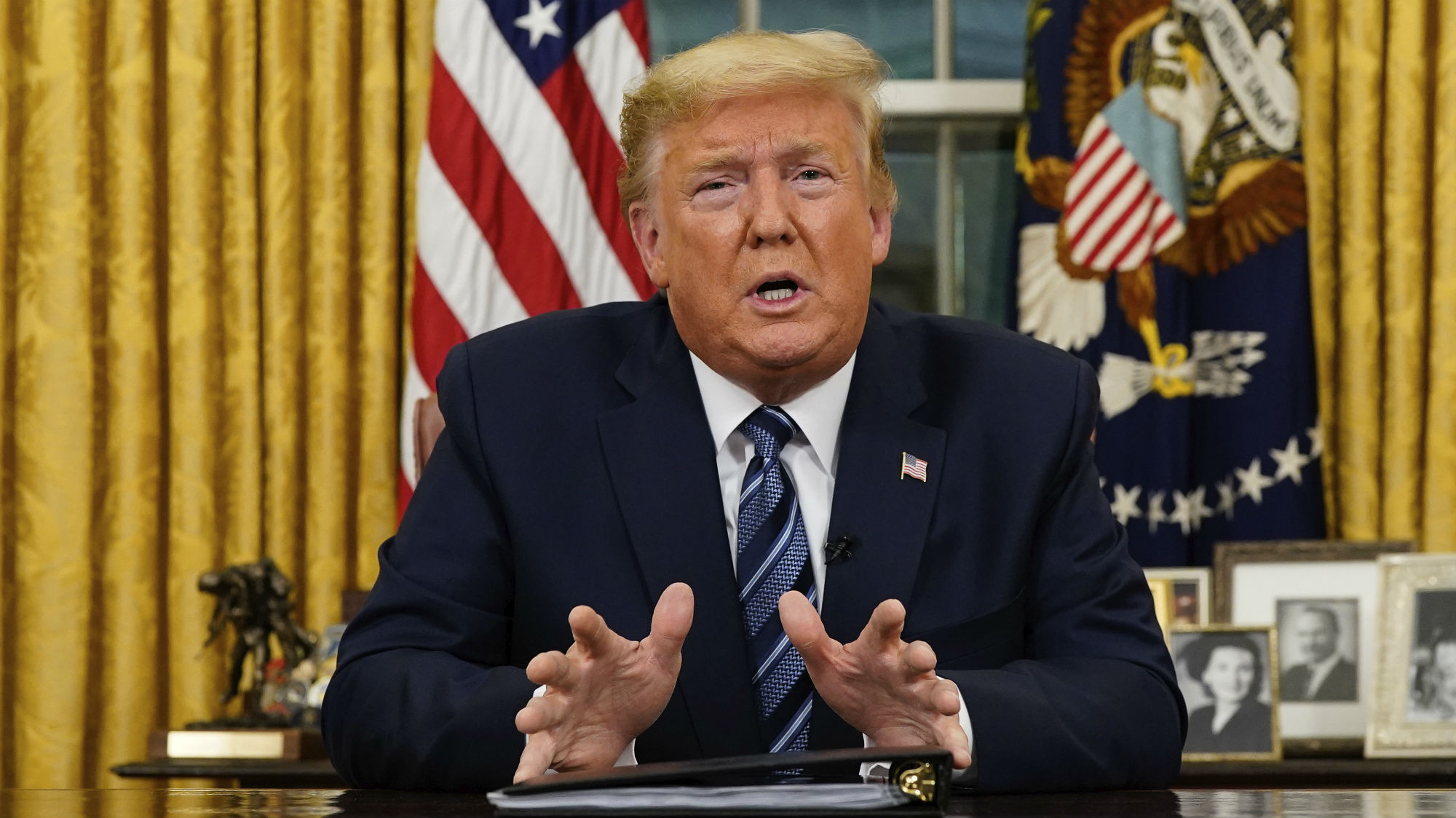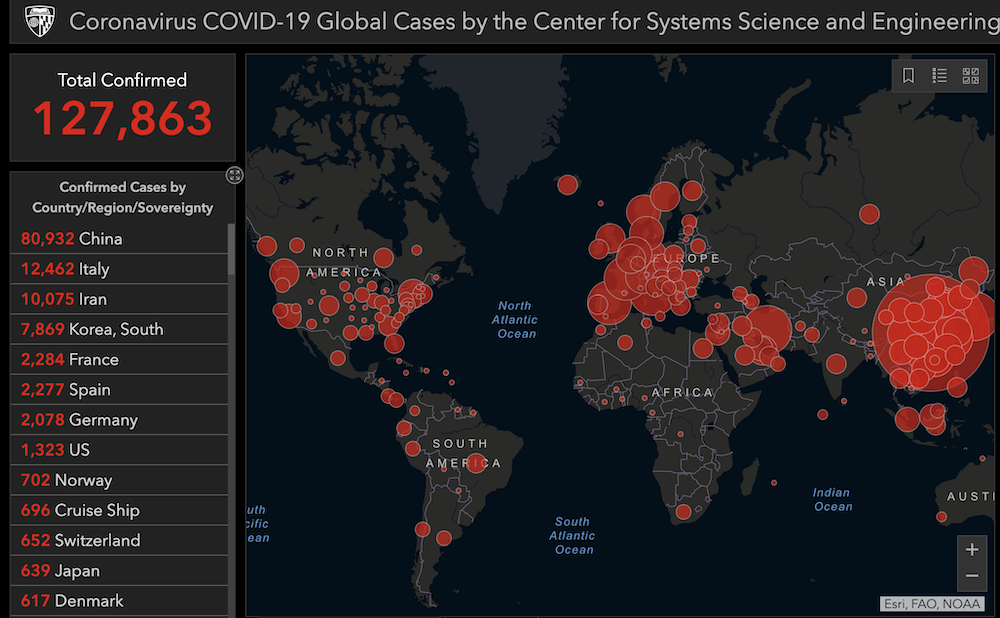
Let’s start with a definition of this disease, first of all, COVID-19 or 2019-nCoV is the official name for the class of disease the media calls the Coronavirus. A coronavirus is any group of RNA (Ribonucleic Acid) viruses that cause a variety of diseases in humans and other animals. If you are like me, I have no idea what that means. My science extends to Star Trek and Bill Nye. I looked it up and it’s the class of diseases that come in various flavors such as Ebola, SARS, Rabies, the common cold, Influenza, Hepatitis C, Hepatitis E, West Nile Fever, Polio, Measles, and now COVID-19. We can thank the International Committee on Taxonomy of Viruses (ICTV) for the unsexy name of COVID-19.
There are tons of (legitimate) resources on the web that can discuss COVID-19 and Coronaviruses far more intelligently than myself. What needs to be addressed is the rapid spread of the disease. On December 31, 2019, it was alerted to the World Health Organization (WHO) as an unusual case of pneumonia. Now on March 12, 2020, as of this writing, the virus has killed at least 4,000 people and infected more than 127,000 worldwide.
How, in a world where we can upload cat videos in seconds, does this disease run rampant and unchecked globally for as long as it did?
Why did it take so long for nations to rally together?
What does this mean for the future of global health and security?
I’ll leave those answers to history and those with bigger brains than mine. However, we can review what brought us to this point and where that might leave us. After World War II, a new order of liberalism was formed, probably better described as globalism, which also acknowledged and encouraged national autonomy [see: institutions like the North Atlantic Treaty Organization (NATO), the World Bank, and the International Monetary Fund (IMF)]. However, for this article, I am ignoring the World Bank and the IMF’s historical legacy in the third world and focusing on their original intent.

So welcome to today, the rise of the Trump administration, right-wing influence growing in Europe, and the return of the “strongman” in countries like Venezuela, the Philippines, Poland, and Turkey. Populist nationalism is making a bigger comeback than the mullet. The coronavirus epidemic is an economic and health calamity of global historical proportions. I am skipping the economics because the actual cost of this virus is in lives and global stability that does include health, economics, security, and safety. Historically the world’s leading governments could have stopped the panic as was done during the 1918 influenza epidemic—when deaths numbered in the millions. Because politicians know being the head of a graveyard is no fun and rather dull. But no such effort came; when it did come it was too little too late to stop the spread. The world panicked, turned inward—something that was arguably happening for the last decade—and it contributed to the epidemic running rampant. As COVID-19 spread, politicians mostly hunkered down to protect their own turf, as evidenced by the rise of the racism seeping into the narrative. Stories of Chinese restaurants being boycotted/vandalized and individuals of Asian descent being assaulted are products of a society adversely affected by these nationalist policies, which are currently pervasive in these governments.
With the assaults on international cooperation; the garbage-fire that is the U.K. during Europe’s Brexit debacle; and Russia and China added to this recipe, it intensified machinations to seize leverage to stem the West’s dominance. It is a high-stakes game of RISK where the quantifiable measure of success is weighed in life and death. Even after its arrival in Italy, nations still turned a blind eye, believing that “It’s not my problem” was an acceptable response to an organism that recognizes no borders or nationalities. Returning to economics if you consider the Great Recession of 2007 to 2009, where the world learned the hard way that what affects one affects us all, it should have been a harsh reminder that national self-interests must be balanced, not live in opposition with global interests. As of March 11, 2020, COVID-19 has now been declared a pandemic, that started in China and is spreading around the world at a frightening rate.
As I stated earlier economic globalization has made nations realize that interconnection is the key to survival and stability. Nationalism, however, has made it difficult to translate this interconnectivity into a sustainable model of collaboration. This difficulty is illustrated well when it comes to problems such as the planetary environmental crisis. Nationalism serves to exclude and disadvantage those considered “others” or invaders.

How do we stop the obvious destructive ideals of nationalism?
We find hope for moving forward in historical and current thinking against nationalism. True frameworks for social balance, national autonomy, and globalization exist, look at the 1954 Panchsheel Treaty between India and China, a coexistence agreement in the Tibet Region of China and India including outlining their relationship on trade. This agreement, also beautifully and simply known as the “Five Principles of Peaceful Coexistence”, begins with a declaration for mutual respect for each other’s territorial integrity and sovereignty: mutual non-aggression, mutual non-interference, equality, mutual benefit, and lastly peaceful coexistence. While still a work-in-progress, these and ideals like them are the basis for more inclusive agreements, such as the Non-Aligned Movement (NAM) a 120-nation collective that is not formally aligned with or against any major power bloc—as it refers to imperialism, colonialism, neo-colonialism, racism, and all forms of
foreign aggression.
Again, these agreements are not perfect as history has shown but they are a step forward, toward interconnectivity and cooperation. Until the dawn of a society in which the collective identity transcends xenophobic boundaries—one in which citizens of the minority and disadvantage are no longer looked at as “them” but instead treated with the same respect as those from the majority group—until then, toxic nationalism will thrive. Today we face world financial markets in turmoil, global security is being tested like never before, the world’s toilet paper supply is in jeopardy, and even the street value of a dime bag of that good Purell is getting out hand. Say hello to textbook global panic.
In a globalized world, without an effort to reconcile national accountability and identity with international cooperation, populist nationalism will be the millstone that grinds away our health and security.


